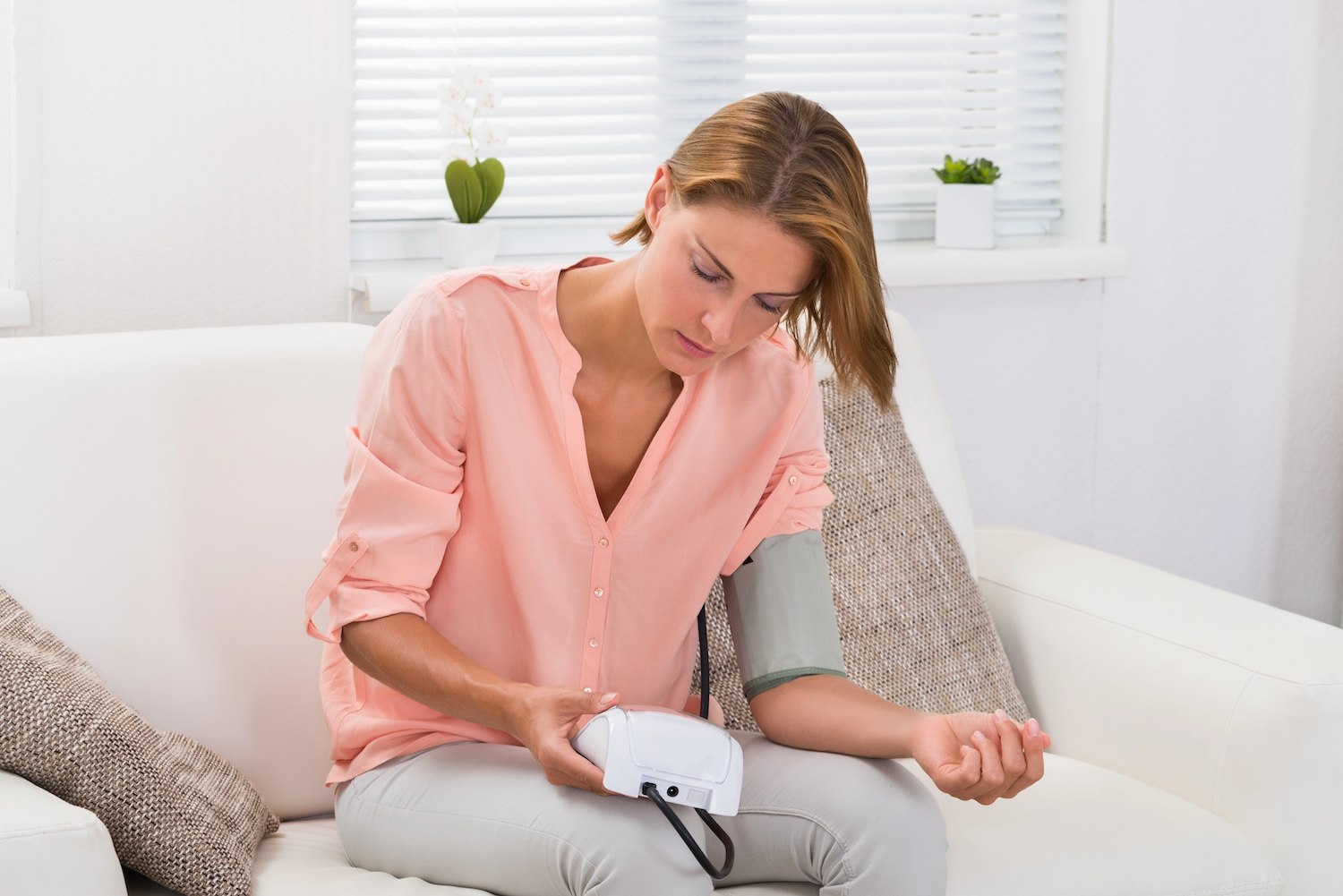Managing diabetes effectively involves a multi-faceted approach, extending beyond blood sugar monitoring and medication. It encompasses lifestyle adjustments that impact daily activities. For individuals with diabetes, maintaining a clean home isn’t merely about aesthetics — it’s a vital component of their overall health and hygiene strategy. Complications such as neuropathy and reduced mobility can make routine household chores challenging and potentially risky. But what if maintaining a clean home didn’t have to add stress or strain to your demanding routine?
Professional house cleaning services can offer practical and health-related advantages, particularly beneficial for individuals managing diabetes. By delegating physically demanding tasks, individuals can conserve energy and focus on other critical aspects of their health. Major health organizations like the Centers for Disease Control and Prevention (CDC) and the American Diabetes Association (ADA) consistently emphasize the importance of a clean and hygienic environment for preventing infections and promoting general well-being. For individuals with diabetes, who may have a heightened risk of infection, these hygienic practices are paramount. Professional cleaning can be a valuable tool to help achieve and maintain such an environment, especially when physical limitations exist.
This article explores how professional cleaning services can positively impact the health, hygiene, mental clarity, and overall well-being of individuals with diabetes, thereby supporting their broader diabetes management efforts. It also offers tips on allergen-safe cleaning, home air quality, and choosing a diabetes-friendly cleaning routine that supports chronic illness care.
Why House Cleaning Matters for People with Diabetes

Understanding Diabetes-Related Complications At Home
Diabetes, especially when poorly managed, can lead to several health complications that impact daily living. Common issues include neuropathy, which affects nerve sensitivity and often results in numbness or pain in the extremities, and peripheral vascular disease, which reduces circulation and complicating physical activity. These conditions can significantly impact mobility and balance, making basic household tasks such as vacuuming, mopping, or even dusting uncomfortable or hazardous. Furthermore, the physical strain involved in cleaning activities may increase the risk of falls or injuries among diabetic individuals already managing such complications. Recognizing these limitations is essential for creating a safer home environment that supports diabetes management rather than complicating it.
Hidden Risks of Household Chores for Diabetic Individuals
Routine household chores are often underestimated regarding the physical exertion they require and their potential health risks for individuals with diabetes. Tasks like bending to scrub floors, reaching high shelves, or moving heavy furniture can exacerbate existing health conditions or lead to new injuries. For example, diabetic neuropathy can impair sensation in the feet, making it challenging to maintain balance and increasing the likelihood of accidents or undetected injuries. Similarly, strenuous or repetitive tasks might contribute to fluctuations in blood sugar levels due to exertion-related stress. Professional house cleaning services offer a solution by taking on these potentially harmful tasks, allowing individuals with diabetes to avoid unnecessary physical strain and focus on their health.
Benefits of Professional House Cleaning for Diabetic Patients
Reduced Physical Strain and Injury Prevention
Engaging professional residential cleaning services helps alleviate the burden of physically demanding tasks. By reducing the need for heavy lifting or repetitive motions that could cause strain or injury, diabetic individuals can better conserve their energy. This allows them to avoid exacerbating chronic conditions like neuropathy or poor circulation and to engage more safely in other important self-care routines and intentional physical activity.
Engaging professional residential cleaning services helps alleviate the burden of physically demanding tasks. For individuals managing diabetes, especially those dealing with complications like neuropathy, limited circulation, or fatigue, everyday chores such as mopping, lifting, or prolonged standing can be risky. Professional cleaners can take over these physically taxing responsibilities, reducing the likelihood of strain, injury, or overexertion.
This reduction in physical burden does not just help prevent accidents, it enables diabetic individuals to redirect their energy and mobility toward higher-priority health goals, such as structured physical activity and self-care. In fact, professional house cleaning can serve as a supportive tool in a more active lifestyle. By outsourcing cleaning, individuals may be more likely to maintain exercise routines recommended by the American Diabetes Association (150 minutes of moderate aerobic activity per week), without being fatigued by household work.
In this way, cleaning services are not merely a convenience—they are a practical component of long-term diabetes care that supports better health outcomes, injury prevention, and improved quality of life.
Better Infection Control and Home Hygiene
Maintaining a sanitized living space is key for everyone, but it’s especially crucial for individuals with diabetes, as high blood sugar levels can sometimes weaken the immune system’s response, increasing susceptibility to infections. An infection can, in turn, significantly destabilize blood sugar levels. Professional cleaners can follow rigorous hygiene protocols, especially in high-risk areas like kitchens and bathrooms, helping to reduce exposure to harmful germs and allergens, thereby minimizing infection risks and supporting a healthier home.
Improved Mental Health and Stress Reduction

A clean, organized living space significantly contributes to emotional and psychological well-being. This is particularly important for individuals managing the daily demands of a chronic condition like diabetes. Cluttered or unclean environments can contribute to stress and anxiety, which can indirectly affect blood sugar levels through hormonal responses. By easing the workload of routine chores, professional cleaners can lessen day-to-day stress, creating an environment that encourages relaxation, focus, and control. This support contributes to better emotional balance, which plays a role in overall health and can make diabetes management feel less overwhelming.
Does House Cleaning Count as Exercise for Diabetics?
Why It Doesn’t Replace Exercise—but Supports It
While cleaning involves physical movement, it should not be considered a substitute for structured, physician-recommended exercise. The American Diabetes Association advises that individuals with diabetes aim for at least 150 minutes of moderate-intensity aerobic activity per week—such as brisk walking, cycling, or swimming—along with muscle-strengthening activities. These types of exercise offer significant benefits for improving insulin sensitivity, glucose control, and cardiovascular health, which the inconsistent and often low-to-moderate intensity of routine household chores typically doesn’t provide.
Professional cleaning services can be an excellent complement to an active lifestyle. By removing the physical burden of housekeeping, they allow individuals with diabetes to conserve energy and dedicate their time and physical capacity to purposeful exercise tailored to their health needs and abilities. In this way, professional cleaning isn’t a replacement for activity—it’s a resource that helps make consistent, beneficial exercise more achievable.
How to Choose a Diabetic-Safe Cleaning Service
For individuals with diabetes, selecting the right professional residential cleaning service is more than a matter of convenience—it’s about supporting their health and safety. A suitable cleaning service provider should prioritize hygienic cleaning methods and be willing to use products that are non-toxic, fragrance-free, and hypoallergenic, to reduce the risk of allergic reactions or respiratory irritation.
It’s important to:
- Verify whether the cleaning staff are trained, insured, and follow established protocols for sanitization.
- Inquire about the products they use and if they can accommodate requests for specific types of cleaners.
- Communicate any specific health needs, sensitivities (e.g., to dust, chemicals, fragrances), or areas requiring particular attention due to mobility or health equipment.
- Look for companies that offer customizable cleaning plans to meet your frequency needs and address specific concerns.
- Read customer reviews, check service credentials, and ensure clear communication to build a trustworthy relationship.
These considerations help ensure that professional cleaning supports—not complicates—diabetes management.
Long-Term Home Hygiene Tips for Diabetic Individuals
Adapting to Seasonal Changes: Mold, Allergens, and Air Quality
Seasonal changes can have a noticeable impact on home environments, particularly for individuals with diabetes. During humid months, increased moisture can lead to mold growth, especially in bathrooms, kitchens, and poorly ventilated areas. Mold exposure can irritate the respiratory system and may increase inflammation, both of which are problematic for individuals managing chronic conditions. Cold seasons may increase indoor allergen buildup due to closed windows and reduced airflow, while spring and fall may bring outdoor allergens like pollen indoors.
To adapt, diabetic individuals should:
- Regularly check and clean areas prone to mold and mildew (e.g., shower tiles, window sills)
- Use dehumidifiers during wet seasons to maintain healthy indoor humidity levels
- Replace HVAC or air purifier filters seasonally
- Keep windows closed on high-pollen days and clean entryways frequently
These preventative strategies help minimize respiratory stress and support a consistently healthier indoor environment—year-round.
Maintaining a clean home is an ongoing effort. Beyond scheduled professional cleanings, or if professional services are not utilized, establishing sustainable hygiene habits is beneficial. Consider help from family members or community support services if tasks are difficult. Focus on high-touch surfaces like doorknobs, light switches, remote controls, countertops, kitchen appliances, medical equipment (following manufacturer’s cleaning guidelines), and bathroom fixtures. Daily or weekly cleaning routines using mild, effective disinfectants are recommended.
Ventilation also plays a role in indoor air quality. Keep windows open when possible, and consider using air purifiers or HEPA filters to minimize allergens, dust, and airborne pathogens that can aggravate diabetes-related respiratory issues. Moreover, avoid harsh chemical cleaners that may irritate the skin or lungs—especially important for individuals with diabetes-related skin sensitivities.
Organizing cleaning tasks into manageable, low-effort routines or assigning specific areas per week can help sustain cleanliness without overwhelming effort. Whether you do it yourself or rely on assistance, consistent hygiene practices make a measurable difference in living a healthier, safer life with diabetes.
Frequently Asked Questions (FAQs)
Here are some common questions diabetic individuals have about home cleaning and health safety.
Why is house cleaning especially important for individuals with diabetes?
For individuals with diabetes, maintaining a clean home is crucial primarily because it helps reduce the risk of infections, as diabetes can affect immune function and healing. Infections can significantly disrupt blood sugar control. Additionally, a clean and organized space can lower stress and create a safer environment (e.g., reducing trip hazards), contributing to overall well-being and supporting diabetes management.
Can professional cleaning services help prevent diabetes-related complications?
Yes, indirectly. While not a medical treatment, professional cleaning reduces exposure to harmful germs and allergens, which helps prevent infections—a common concern that can lead to or worsen complications in diabetes. It also minimizes physical strain from doing chores, which can prevent injuries, especially for those with neuropathy or mobility issues.
How often should individuals with diabetes consider professional cleaning services?
This varies based on individual needs, mobility, and the complexity of their health situation. For some, every 1–2 weeks might be beneficial, especially if managing significant physical limitations or immunity concerns. For others, a monthly deep cleaning can supplement lighter personal upkeep.
Are there specific cleaning products recommended for use in the homes of individuals with diabetes?
It’s generally advisable to use:
* Non-toxic, fragrance-free, hypoallergenic agents, particularly if sensitivities or allergies are present.
* EPA-approved disinfectants for critical areas.
* Microfiber cloths or steam cleaners, which can be effective with less chemical use.
* Avoid or use with caution: ammonia, bleach, and products with strong fragrances that may irritate skin or lungs.
What should diabetic individuals consider when choosing a professional cleaning service?
Look for services that:
* Are willing to use safe, non-toxic products or products you provide if you have sensitivities.
* Have trained, insured staff who follow good hygiene protocols.
* Offer customizable plans and clear communication.
* Have positive client testimonials.
Can house cleaning replace regular exercise for individuals with diabetes?
No. Cleaning involves some physical activity but typically doesn’t provide the consistent aerobic intensity or muscle-strengthening benefits needed to improve insulin sensitivity and manage blood glucose effectively. Structured exercise as recommended by a healthcare provider—like walking, swimming, or cycling—is still essential.
How does a clean home contribute to mental health in individuals with diabetes?
A clutter-free, clean space can significantly reduce stress and anxiety, which are factors that can influence blood sugar regulation. It fosters a sense of control, comfort, and calm, supporting better emotional well-being.
Are professional cleaning services affordable for regular use?
Costs vary widely. Many providers offer flexible plans or discounts for recurring cleaning services. For individuals managing chronic conditions, investing in regular cleaning can be a worthwhile consideration for its health and quality-of-life benefits, potentially offsetting other stress or health-related costs.
Your Home, Your Health: Final Considerations for Diabetes Management
Professional residential cleaning, when chosen carefully, offers diabetic individuals substantial health and quality-of-life benefits. By reducing physical strain, significantly enhancing hygiene to lower infection risk, and improving overall comfort and emotional well-being, these services can become a valuable part of an effective and holistic diabetes management plan. A clean, safe home environment allows individuals to better focus on other critical aspects of their health.
While Complete Clean does not provide medical advice or treatment, this article aims to provide useful information that supports a healthier home environment. We encourage individuals with diabetes and their caregivers to stay informed, prioritize consistent hygiene, and build supportive routines that align with broader wellness goals. With the right balance of support and self-care, managing diabetes at home can be safer, less stressful, and more sustainable.
For Professional Cleaning Services You Can Trust in Grand Cayman:

Complete Clean is dedicated to providing you with a thoroughly clean and hygienic home environment. Entrust the cleaning to us, and reclaim your time to focus on your well-being and peace of mind.
Ready for a home maintained by dedicated professionals? As a leading cleaning service provider in the Cayman Islands, we invite you to contact us today to learn more about our services or to schedule your consultation.






